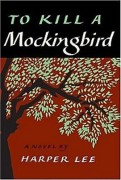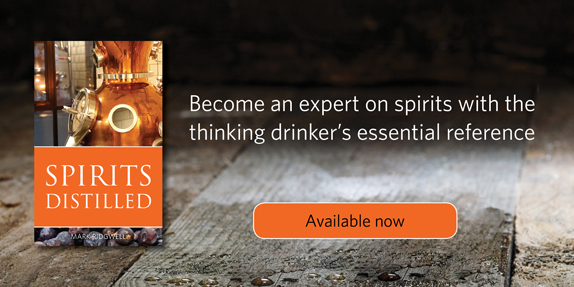Author Archives: Catherine Holdsworth
Harper Lee: breathing life into a classic
4 February 2015 by Catherine Holdsworth in Book publishing, Classic Wine Library
If you haven’t read Harper Lee’s To Kill a Mockingbird then what have you been doing all these years? If there ever was a ‘modern classic’ then this is it. Set in Alabama and focussing on the childhood Jem and Scout Finch, the children of local lawyer Atticus, the reader is shown the absurdity of racism through the innocent eyes of children.
Largely hailed as a champion of the Civil Rights Movement and still incredibly relevant today with regards to the situation in Ferguson, USA, Lee’s novel has, until now, been a one hit wonder. So successful was her novel that not only did Lee need to work again, but the attention of writing such a groundbreaking novel was too much for the author. Many people, until yesterday, presumed that she was a man:
‘Isn’t Harper Lee a man?’ – best To Kill a Mockingbird sequel reactions http://t.co/7jkLAGdW9T pic.twitter.com/QZpb1kLn6k
— Independent Books (@indybooks) February 4, 2015
Lee, the 88-year-old author has announced that this year she will be publishing a follow-up to her novel entitled Go Set a Watchman, focussing on Scout’s return to her home town as a young woman. Most people seem to be excited about this, but there are others who worry that the new publication will detract from the ‘classic’ status of its predecessor. As with any sequel, there is always the anticipation that it has to live up to the first one. Look at how the Star Wars ‘prequels’ were butchered, or how Hangover II just didn’t have the impact of the first one. When you write a novel as good and seminal as To Kill a Mockingbird, do you ever get a second chance to do it again?
Take, for example, Bob Dylan, whose best work is arguably his early 60s albums like The Freewheelin’ Bob Dylan and Like a Rolling Stone. Though still making music, Dylan has lost the magic of his early career. Perhaps this is due to the change in zeitgeist, we no longer have such a need to hear these songs?
 For Lee, the issues in her first novel are still as relevant as ever. Earlier this week, Vanity Fair Magazine was shown to be ‘too racist’ in the production of the cover of its annual Hollywood Edition. Only one black actor, David Oyelowo (who has also spoken out about the lack of opportunity for black actors in Hollywood) features on the cover after the controversy of all white nominees in the acting categories for the Oscars. Lee’s remarkable novel is still incredibly relevant and one hopes that her second will open as many minds as the first.
For Lee, the issues in her first novel are still as relevant as ever. Earlier this week, Vanity Fair Magazine was shown to be ‘too racist’ in the production of the cover of its annual Hollywood Edition. Only one black actor, David Oyelowo (who has also spoken out about the lack of opportunity for black actors in Hollywood) features on the cover after the controversy of all white nominees in the acting categories for the Oscars. Lee’s remarkable novel is still incredibly relevant and one hopes that her second will open as many minds as the first.
Though Infinite Ideas are in no way as ground breaking as Harper Lee, we see the value in relaunching and republishing because ideas and publishing are important. Our new series, the Classic Wine Library, has rejuvenated what was a tired series and breathed new life into much loved titles, such as Julian Jeffs’ Sherry, which has recently been published in its sixth edition. Still as relevant as it was in 1961, when first published, Jeffs’ book is the very definition of a classic.
Goodbye page 3, goodbye to ‘harmless fun’?
21 January 2015 by Catherine Holdsworth in Current events, The Diversity Dashboard
 If rumours are to be believed, this is the final week that The Sun are featuring topless models on page three. This can be seen as a huge victory for the No More Page 3 campaign, whose message is that ‘boobs aren’t news’. Being a media company, we cannot quite understand the need for so many boobs every day. To be honest, we’re really quite glad that they’re going. It turns out that you really can have too much of a good thing.
If rumours are to be believed, this is the final week that The Sun are featuring topless models on page three. This can be seen as a huge victory for the No More Page 3 campaign, whose message is that ‘boobs aren’t news’. Being a media company, we cannot quite understand the need for so many boobs every day. To be honest, we’re really quite glad that they’re going. It turns out that you really can have too much of a good thing.
The more arguments we have read in the past few days in favour of page 3, the more ridiculous it all seems. One topless model, who shall remain nameless to protect her dignity, tweeted:
By studying pics of the world’s leading feminists, scientists have discovered why they hate glamour models. #Page3 pic.twitter.com/PlFBH1YVAV
It would seem that the emphasis on how page 3 promotes beauty and healthy women is key to its remaining a key part of British culture. Beauty is subjective, and there are many people who think that the ‘ugly feminists’ that you refer to are incredibly beautiful.
Another baffling argument is that page 3 is inherent to the British culture. Just like cups of tea, the monarchy and awkward silences, Britain just wouldn’t be the same without a pair of knockers to look at while eating our cornflakes. Of course, one could say that if you don’t want to look at it, don’t buy it, but the point is that it is there, it is demeaning, we should be celebrating women’s achievements and reading about real news rather than listening to the latest DDD telling us about her concerns regarding the situation in Syria. I am yet to see a topless man in speedos on page 3 greet me on my way to work, but perhaps that is a very good thing indeed!
Whether or not this is just ‘harmless fun’, perhaps it would be better places in a magazine better suited than a morning newspaper. It becomes difficult to take the ‘hard-hitting’ journalism with a spoonful of boobs. On the subject of culture crashes, Eilidh Milnes and Deborah Swallow, authors of The diversity dashboard have some helpful advice with regards to nude pictures of women, particularly when crossing borders:
Culture crash
A successful UK construction company had delivered several building contracts in Dubai. There were many lucrative deals in the pipeline and Greg Martin was confident that he had established a good working relationship with his Arab counterparts. He then employed a marketing director who had little or no experience of working in UAE. It was Christmas time and the new director decided to send gifts of calendars to Dubai. His UK clients loved them, so he did not think to check with the CEO. The response to the prestigious Pirelli calendars was not what he expected…
Culture tip
The Pirelli calendar is famous for its limited availability as it is only given as a corporate gift to a restricted number of important Pirelli customers and celebrity VIPs. The calendar pictures are generally considered ‘glamour photography’ – naked women. It is a totally inappropriate gift for the region and the reaction from Dubai was immediate shock, horror and dismay. The whole enterprise was jeopardized and Greg Martin had to fly out immediately to placate his client. There was a ceremonial burning of the calendars and a tremendous loss of face. To date Greg has done no further work in the Emirates.
Beat blue monday
19 January 2015 by Catherine Holdsworth in Current events, Lifestyle
As if Monday isn’t bad enough, today is Blue Monday; supposedly the worst day of the year. Christmas seems like forever ago, you’ve already broken your resolution not to drink and temperatures in the UK have dipped below zero. What could be worse? Well actually, there are lots of things that are worse, like losing your luggage at the airport (bad luck to anyone who experiences this today) or stepping in something wet when you’ve just put on a clean pair of socks.

Infinite Ideas are no strangers to helping people out of a bad spot with our books, Defeat depression and Beating the blues. We have come up with several strategies in the office to give you some helpful tips to make this feel like any other Monday (except better because most people do not like Mondays).
- Perhaps the obvious solution to beating Blue Monday is to paint the town red. Don’t do what the media is telling you to and go crazy after work. Infinite Ideas will not take any responsibility for the hangovers or bad decisions that may ensue. Our advice should be taken at your own risk.
- Play your favourite song. We’ve all got a song that makes us get up and dance; throw our arms in the air like we just don’t care. Blast it out in the office and start a happiness rave
- Go swimming. Immerse yourself in a pool of relaxation and pretend you are in the Mediterranean Sea.
- Take a long lunch. OK so you may have to make up for this later today but give yourself a break today. Take some time for yourself and chill out before returning to the office.
- Think about this evening. What will you do with your free time? Perhaps you could go home and curl up with that book you swore you’d read this year. Or cook for your friends/housemates/significant other; there’s nothing better than coming in from the cold to a hearty meal on the table.
- Think about summer. Just like Olaf in Frozen, think about what you’ll do in the summer. It might feel like forever away but the daffodils are beginning to bud. Before you know it you’ll be dusting off your summer wardrobe.
- Do something spontaneous. This could be simply buying a chocolate bar or it could be booking that trip to Morocco that you’ve always wanted to take. Regardless, it’ll put a spring in your step.
- Call someone that means lots to you. For many of this, it’s our mum, but it could be a friend or extended relative. You can bet that they’re not expecting it and it will give them as well as you a lift.
- Print off a picture of happiness. Of course, happiness is subjective so find something that makes you smile. This may be a picture of a tropical destination or it could be Ryan Gosling. See, we’ve done the hard work for you!
- Look at the picture of a really happy baby elephant. This is bound to improve your day. If it doesn’t then we cannot help you.
Dry January
13 January 2015 by Catherine Holdsworth in Lifestyle, Spirits distilled, Wine and spirits
Many people this time of the year are choosing to observe ‘dry January’ in a bid to detox their bodies from all the Christmas overindulgence.
We’re almost half way through the month now and many of you may be rethinking a whole 31 days without alcohol. Rather than going cold turkey and risk crying in the wine aisle at the supermarket, why not adjust your goal to something more reasonable such as only drinking at weekends. We’re also approaching that dreaded of all days, ‘blue Monday’ where the entire human race seems to question its own existence and wonders whether it isn’t better to just admit defeat and look for the answer at the bottom of a large bottle of Jack Daniels and the wrappers of the now not-so-amazing Cadbury’s creme eggs.

Perhaps, rather than drowning your sorrows in whisky, you could take this month of reflection to learn more about the spirits that you regularly consume during happy hour. Mark Ridgwell’s Spirits distilled is an excellent book filled with everything you need to know about spirits. Each chapter begins with a brief history of the drink and provides ample opportunity for you to bone-up on your knowledge and impress your colleagues at after work drinks. Perhaps this is the month to drink the bar dry or to enjoy a dry gin and tonic. Be creative and impress your friends by coming across as a cognac connoisseur, a whisky wizard or a gin genius. Ridgwell’s book is interspersed with quizzes so that you can test your knowledge on what you’ve read and prove that you really do know your stuff.
All the best for the upcoming Monday, we really do hope that you make it to work on Tuesday. Our sound advice would be to get back off the wagon slowly, tonight, treat yourself to a scotch (or American) on the rocks, then perhaps that bottle of JD will go down smoother than expected! 
Football: tax the expensive players to get more suspense
7 January 2015 by Catherine Holdsworth in Business and finance, Current events, Football Business
(Translation of an article that appeared in the Dutch newspaper De Volkskrant.)
Introduce a levy on players and football is fun again.
Football is getting less exciting. In many leagues and tournaments competitive balance is decreasing. For instance, only few clubs still have a chance to win the Champions League, and Ajax is no longer among them. In addition, the status and therefore the attractiveness of the leagues of small countries is waning in the long run because of the outflow of talent, and this also holds for the Dutch Eredivisie. Of course, a boy from Amsterdam can support of Barcelona so that he can see the club of his dreams win the important Spanish title, or the Champions League. But he sacrifices his chance to see his club win in a football stadium. Barcelona is far away, and CampNou has only 99,000 seats. The boy will cheer before the television, possibly alone because his friend next door is an Arsenal fan.
In the meantime tickets are getting more expensive, and viewers now pay to watch matches that used to be free. In the Netherlands, things are not like this yet. However, the cheapest season ticket for Arsenal is a staggering €1250. Football is getting less accessible for the average fan.
How do our politicians react to this? They let it go. If the Dutch government takes a measure which significantly harms big firms – such as a high old-fashioned tax on profits – many firms will move abroad.
But football is different. The biggest clubs are all located within the European Union. And it will remain that way. Arsenal cannot move to New York, because it will lose almost all its fan. And therefore the European Union has, in principle, power over the clubs.
It should use that power now. I propose a progressive social levy. This means that a club like Arsenal should spend one euro on special projects for every euro it spends on players’ salaries. For example, projects to reduce the rate of school dropouts, or to support non-professional clubs. The downside to this is that the levy will force Arsenal to spend less on players, which will weaken its squad.
Feyenoord Rotterdam adopts this sort of business model: for every euro the club pays out on player salaries, it has to spend 20 cents on social projects. For a small Dutch club like Cambuur the figure is five cents, so that Cambuur can pay its players almost the same salaries as before. So, Cambuur stands a better chance against Feyenoord, and Feyenoord can score more goals against Arsenal. This is also an advantage because Feyenoord’s monumental stadium, De Kuip, has a much better atmosphere than Arsenal’s expensive Emirates Stadium, making victory for the fans even sweeter.
But can the football sector really afford to divert large sums of money to social projects? The answer is simply, yes, it can. The average club in the English Premier League, for instance, now earns 53 times as much as the average club in the English top division of 1960 (after adjusting profits for inflation). Elsewhere in Europe, football has also seen remarkable growth. The exploding revenues have mainly been used to pay players higher salaries. Now, because the levy is directly based on the players’ payroll, the players will earn less so that no club needs to go bankrupt. Because the levy is highest for the largest clubs, it is the top players like Steven Gerrard and Wayne Rooney that will feel the effect of this business model most harshly. But they can still become millionaires.
What we need is to restore balance to the competition and not restrict victories to whichever club has the most money to spend on players. At the same time, more money will be available for social projects. Too idealistic? From an economic view certainly not.
But is the proposal politically feasible? We are talking about a policy that harms vested interests and that can only be successful after a hard political battle which can take many years. So the question is whether there are politicians who want to fight for the fans. Or will politicians rather prefer to let the football fans walk alone? One thing is certain: the extent to which football remains attractive will depend on politicians.
Tsjalle van der Burg is economist and author of the book Football Business: how markets are breaking the beautiful game
Codebreaking our future
23 December 2014 by Catherine Holdsworth in Book publishing, Codebreaking our future
Michael Lee’s new video, ‘Finding Future X in Cape Town,’ discusses his book, Codebreaking out future and the impacts of time and casuality on the future. Perhaps your 2015 resolution will be to break the code of the future…
Watch the video here


